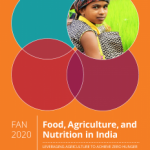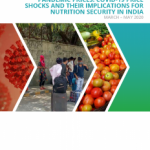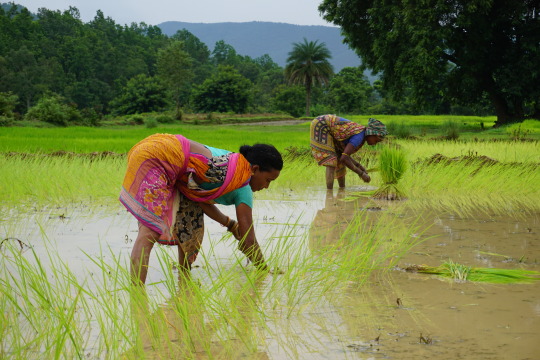Tag: publication

Three Essays On Agriculture – Nutrition Linkages: Women’s Iron Status and Empowerment In Agriculture In Chandrapur, India
Abstract Agriculture based approaches are increasingly being propagated for tackling micronutrient malnutrition. Women constitute 30% of the agricultural labor force in India. However very little research has systematically examined the connection between farming systems and the status of women, that is their level of empowerment,...

Essays on Human Capital & Development in India
Abstract This dissertation consists of three independent research papers, tied under a broad research agenda of “human capital” in India. Chapters 1 and 2 are closely related and both utilize a self-collected, primary dataset on the subjective beliefs, of a sample of 12th-grade students,...

In Vitro Digestion Methods to Estimate Forage Quality and Applied Research on Goat Feeding Systems in Odisha, India
Abstract Measuring forage quality reliably in the laboratory and field is of crucial importance because livestock nutrition is a defining component of system productivity and accounts for a substantial portion of system costs. This dissertation explores both aspects of forage quality estimation with one chapter...

Changes in Men’s and Women’s Economic Roles in Rural Indian Households, 2009-2014
Abstract The purpose of my dissertation research is to examine the effect of men’s non-farm employment on women’s economic roles in rural India, as mediated by class, caste, and education. The main hypothesis of my dissertation is that changes in men’s time-allocation towards wage and...

Pathways from Agriculture to Nutrition in India: The Role of Women’s Time Trade-Offs and Empowerment
Abstract Agriculture plays a key role in improving nutrition as a significant proportion of the malnourished population lives in rural areas and depends on smallholder agriculture for their sustenance. About 30 percent of the labor force in agriculture in India are women, and they contribute...

Essays On K-12 Education in Developing Countries – Causes, Consequences and Impediments
Abstract This dissertation focusses on the causes and consequences of low human capital accumulation among children and adolescents in developing countries in Asia and Africa. My analysis is divided into three separate papers that explore different aspects of this research agenda. Broadly, chapter 1 of...

Essays on the Time Use and Behavioral Patterns of Women’s Access to Household Water in Rural India
Abstract In this dissertation, three independent research papers are joined together by the common research theme of ‘Women’s access to household water’ in India. The first two papers are based on the self-collected data from selected villages of Jharkhand, India. In these papers, I am...

Food, Agriculture, and Nutrition in India 2020: Leveraging Agriculture to Achieve Zero Hunger
TCI’s 2020 report on Food, Agriculture, and Nutrition in India (FAN 2020) provides an analysis of India’s progress towards achieving the second sustainable development goal—zero hunger. Using district-level data and maps, the report highlights stark spatial differences in the extent of the hunger problem and identifies potential...

Pandemic Prices: COVID-19 Price Shocks and Their Implications for Nutrition Security in India
In Pandemic Prices: Price Shocks from COVID-19 and Their Implications on Nutrition Security in India, TCI researchers assess the impact that India’s COVID-19 lockdown had on Indian food prices. They demonstrate that the lockdown disrupted the supply chains for some foods more than others, driving up...

Why agricultural income growth is critical for young women’s nutrition
Much academic and policy interest has been generated in recent years to understand how the agricultural sector can be leveraged to address problems of malnutrition in developing countries. For improving nutrition among women in particular, agriculture─nutrition linkages are important, since…

